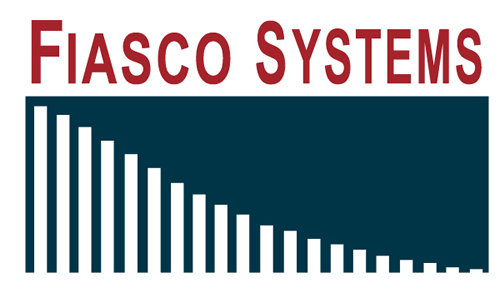08.21.15
Posted in America, Law, Patents at 4:09 pm by Dr. Roy Schestowitz
One important case has put potentially hundreds of thousands of software patents in a mass grave

Summary: Patent scope in the United States continues to be narrowed down as more software patents get their wings clipped
“US Pat 6,326,978, Display for selectively rotating windows,” wrote Patent Buddy was “Killed by CAFC” (using Alice as precedent).
This is consistent with the outcome of Alice (Alice v. CLS Bank at SCOTUS level) as we have covered it in the past few months [1, 2, 3, 4, 5].
Despite all this, patent lawyers say that “US software patent suits being filed at higher rate than in 2013″. To quote their sources: “An analysis of patent litigation by Managing IP using the Docket Navigator database has revealed that software patent lawsuit filing is not only up on 2014, but has rebounded to exceed the levels in 2013.
“When Managing IP last carried out this analysis in December 2014, the figures revealed a plunge in software lawsuit filing. This was attributed to the Supreme Court’s Alice v CLS Bank ruling on June 19, which held that merely claiming an abstract idea is insufficient to establish patent eligibility.”
Irrespective of the number of lawsuits, many of them are lost (legal toll becoming a burden to the plaintiff) because of Alice; that is very important. Patent lawyers are trying to convince their existing and prospective clients to keep patenting software, so they only tell part of the whole story.
“Patent scope is clearly a key problem.”It is clear that swpats (software patents’ shorthand) continue to collapse in the United States and this month is no exception. Examples continue to be covered, just not by media of patent lawyers (they lie by omission, as we have explained before).
“CAFC Refused to Re-Hear Case,” wrote Patent Buddy, “First Patent Kill by Alice” (the latest such example).
Here is some analysis which says: “In its first substantive application of Alice v. CLS Bank in 2015, the Federal Circuit has once again shot down claims for not meeting the patent-eligibility requirements of 35 U.S.C. § 101.”
When it comes to the USPTO, which adapts to these developments slowly but surely, a patent lawyer in London says that the judicial exceptions are now very broad.
Patent scope is clearly a key problem. It’s not about patent trolls, however they’re defined. Some sites continue to focus on “Companies Sued The Most Over Patents In 2015″ (without scaling for the size of companies, hence serving as propaganda that frames large corporations as the biggest victims), but we all know that the patents themselves, not the users thereof or the target of lawsuits, open the door to misuse, abuse, and anti-competitive behaviour, as our previous post demonstrated (Apple versus Android). █
Permalink
 Send this to a friend
Send this to a friend
Posted in Apple, Patents, Samsung at 3:46 pm by Dr. Roy Schestowitz
Why would anyone still support a bully like Apple?

Summary: Apple’s attacks on Android (using bogus patents) may be soon be escalated to the US Supreme Court (SCOTUS)
PATENTS are the long-term foe of Free software because as long as there are software patents (even in just a few countries) import of devices with Linux or Android or whatever other Free software inside them can be banned, barred, blocked at the border. It’s a massive injustice.
The other day we saw the law firm Fox Rothschild LLP (prolific when it comes to pro-patent-maximising opinions) spreading FUD against Free software licences and promoting software patents. These are the sorts of parasites that continue to stand in the way of a Free software-run world — one in which transparency and participation are part of the social contract. Suffice to say, transparency and participation reduce corruption and empower peace, whereas the opposite creates suspicion, hostility, betrayal, and conflict.
Florian Müller has spent a number of years attacking Android, sometimes as part of the contracts he was paid for, e.g. by Microsoft. He recently wrote about how Apple lost a key design patent. It’s one which we covered before. It’s laughable.
Sarah Burstein says that “SCOTUS hasn’t heard an issue of substantive design patent law for over 100 years.” She cites Howard Mintz who wrote that “Federal Circuit refuses to rehear Samsung appeal of verdict in patent trial against Apple. Scotus or bust” (i.e. last resort).
The SCOTUS has thus far been the best weapon against ridiculous patents (more on that in our next post) and Müller says that Samsung will appeal to it, answering questions from Apple propaganda sites (see questions like “will Samsung ask SCOTUS?” regarding this article from Mac Rumors).
“These are the sorts of parasites that continue to stand in the way of a Free software-run world — one in which transparency and participation are part of the social contract.”This development has been covered a lot by corporate media in the US and it hardly shocks us that a US court ruled in favour of a US company, not a Korean company. We wrote about such biases many times before (the ITC is a good example of that) and since the corrupt CAFC is involved, it makes this anything but shocking, just expected.
There is no CAFC hearing for Samsung, say lawyers from London. Someone “wrote in to say that the method by which the figure was arrived at would, if unchallenged, lead to “absurd results” on the basis that three design patents could not encompass the entire value of a smartphone which has hundreds (if not thousands) of IP-protected features.”
The bottom line is, Apple’s patent war on Android has turned 5 (it started against HTC and then Samsung was added). HTC is still suffering and Apple hopes to destroy Samsung not by innovating but by litigating. By extension, Apple attacks the whole Android world, including Linux. We can’t let Apple get its way. █
Permalink
 Send this to a friend
Send this to a friend
Posted in Europe, Patents at 2:41 pm by Dr. Roy Schestowitz
Helping US patenting standards go international

Summary: How the European Patent Office (EPO) not only turns a blind eye to European law while patenting or granting patents on software but also openly advocates this now
THE EPO has been under fire here for nearly 8 years. The original reason, well before sheer corruption became evident at numerous levels, was patent scope. We had written a great deal about software patents in Europe and the “EPO [is] still pushing for patents on software and business methods,” according to the FFII’s President who now points right into the EPO’s own site.
Well, none of these domains should be patentable in Europe. Anything else would be Battistelli breaking the law yet again, this time in order to artificially increase the number of granted patents, the overall revenue, etc. (making himself look good at the expense of the public to whom he does a huge disservice).
“Democracy in Europe is gradually being crushed under the auspices of “unity” and patents are just one aspect among several (see so-called ‘trade’ deals for more).”Here is the EPO writing “Big data, linked data, linking data: what’s the difference & what role do patents play in them?”
This is promotion of this conference, which seemingly strives to expand the scope of patents.
Jesper Lund, who has been active in this area, says that the “EPO is actively advising people on circumventing the ban on patenting sw [software] and business methods as such (“if claimed as such”).”
The FFII’s President adds that it’s done “With the blessing of the Danish Patent Office DKPTO!” Remember that a Dane, Jesper Kongstad, is Battistelli’s number one minion (or one among several), which is why protests by EPO staff targeted the Danish Consulate earlier this year [1, 2, 3, 4]. Also recall what the Danish Presidency did 3 years ago to further empower the EPO's grip and potentially bring patent trolls to Europe. According to two new reports from IP Kat [1, 2], Europe takes further steps towards this. This issue wasn’t voted on, there was no referendum, and it’s clearly against the interests of ordinary Europeans. Democracy in Europe is gradually being crushed under the auspices of “unity” and patents are just one aspect among several (see so-called ‘trade’ deals for more).
For the EPO it would make perfect sense to eventually patent methods of breaking the laws (abusing staff, patent scope and so on), then evading justice, as was previously done in the Dutch courts system, with help from a corrupt official. █
Permalink
 Send this to a friend
Send this to a friend
Posted in Patents at 2:12 pm by Dr. Roy Schestowitz

Summary: Response to claims that the patent problem is being tackled by focusing on patent trolls and their favourite courts in the Eastern District of Texas
TECHRIGHTS has consistently (over the course of several years) opposed the obsession with “patent trolls”. The de facto usage of the term implies small firms without products, but in reality a lot of the same tactics are used by multinational companies such as Microsoft. The only difference is the number of products advertised on their sites (if any exist at all).
The other day the EFF said that “[w]e Need Venue Reform to Restore Fairness to Patent Litigation”, citing a TV programme about the issue of patent trolls, not patent scope or anything like that. To quote the EFF: “Back in 2011, This American Life toured an office building in Marshall, Texas, and found eerie hallways of empty offices that serve as the ‘headquarters’ of patent trolls. For many, that was the first introduction to the strange world of the Eastern District of Texas, its outsized role in patent litigation and especially its effective support of the patent troll business model. Trolls love the Eastern District for its plaintiff-friendly rules, so they set up paper corporations in the district as an excuse to file suit there. Meanwhile, defendants find themselves dragged to a distant, inconvenient, and expensive forum that often has little or no connection to the dispute.
“The remote district’s role has only increased since 2011 The latest data reveals that the Eastern District of Texas is headed to a record year. An astonishing 1,387 patent cases were filed there in the first half of 2015. This was 44.4% of all patent cases nationwide. And almost all of this growth is fueled by patent trolls.”
But that’s far from the only issue.
An article by Joe Mullin, who specialises in patent trolls, says that “changes to patent law have made it easier to beat patent trolls, but it hasn’t made the patent hotspot of East Texas any quieter. In fact, it’s been in the news more. Massive numbers of patent troll suits continue to be filed there, and the judge who hears most of them has erected barriers to defendants seeking to have their cases disposed of early.”
So it’s obviously not working out. This whole kind of activism (or corporate lobbying) does nothing to eliminate the core issues, mostly addressed by SCOTUS for the time being (more on that in a later post).
Xerox, itself a patent troll by extension, is claimed to have just beaten a patent troll, MPHJ [1, 2, 3, 4]. To quote a lawyers’ site, “Xerox Corp., Lexmark Corp. and Ricoh Americas Corp. won their bid to undo a so-called patent troll’s patent for document scanning Wednesday when the Patent Trial and Appeals Board ruled eight of the invention’s claims unpatentable.
“Nonpracticing entity MPHJ Technology Investments LLC, once called a “patent troll” by Vermont’s attorney general, was unable to persuade the board that the claims in its patent didn’t just combine decades-old prior art, according to a decision handed down by PTAB.”
It is so strange to see Xerox among the defendants here because Xerox itself has become a troll. ~100 Novell employees ended up working for Xerox after Fuji Xerox signed an early patent deal with Microsoft (involving Linux). Xerox now uses proxies to act as its own private patent trolls. Remember when the Microsoft-connected Acacia attacked Linux using Xerox patents (5,276,785 and 5,675,819)?
If spurious litigation (not just “patent trolls”) is what we’re seeking to combat, then we ought to look beyond the scope defined by large conglomerates with an army of lobbyists. Contrary to common belief, Xerox is not a dead company as it still enjoys an annual revenue of $26.58 billion. █
Permalink
 Send this to a friend
Send this to a friend
08.20.15
Posted in Australia, Deception, Law, Patents at 8:22 am by Dr. Roy Schestowitz
More protectionism for more large companies, even those coming from outside of New Zealand

Summary: Corporate conquest or takeover of New Zealand culminates in empty promises from government officials and blackmail against citizens of New Zealand, especially the country’s dairy industry
THE DEBATE about software patents in New Zealand is very important because it set the tone for similar debates in Europe and Anglo-Saxon-dominated countries such as Australia and Canada. It usually revolves around lobbying from US giants against local companies in New Zealand. The lobbying is done through law firms and front groups, but sometimes it’s done more directly (risking backlash and brand erosion for the likes of Microsoft and IBM).
The fight is back in a big way and there are many articles in the local media, as well as the international media. The Institute of IT Professionals has just had the corporate media in New Zealand lobbying for TPP, as expected, despite it being an evil secretive deal, enabling more systemic looting by the world’s super-rich. Some myths and classic nonsense get propagated, but there is also criticism of the secrecy, for instance: “Despite some of the potentially positive matters outlined below, we still hold concerns about the detail – or rather, lack of it. As the negotiations are being held in private, the actual wording being negotiated is restricted to negotiators and other government officials only. This means we and others can’t undertake independent analysis of the impact of what is being agreed until negotiations are complete.”
Rob O’Neill, who has used his role at the CBS-owned ZDNet to fight back against software patents in his country, now explains “How New Zealand’s software patent ban can survive the TPP”.
“Officials give assurances there will be no changes to software patents, ISP liability and parallel importation,” he wrote the other day. Does he really trust these officials given their terrible track record on other secrets? Remember how John Key repeatedly lied about surveillance. It was only when leaks came out (undoing the secrecy) that he had to respond like an angry brat, shooting the messengers rather than admit that he had lied.
It may sometimes seem like the corporate press helps raise scrutiny rather than help the corporations that own the media. Despite that, on the very same day IDG hosted (at ComputerWorld) a notable lobbyist these days for software patents (Martin Goetz). He is now treated as a guest author in this nonsensical piece denying the existence of patents on software, even if he’s just reposting there (plus some “NZ” added) what he very recently wrote for lobbyists of software patents in IP Watchdog (patent lawyers with an exceptionally big mouth). How dumb does he think the readers are?
The people who want software patents in New Zealand are basically blackmailing for changed laws, using sanctions in reverse. As Clare Curran (MP) put it the other day, “Will Groser trade NZ innovation 4 dairy? Software sector raises concern over patents 2 secure access 4 dairy products”
See this Australian article which supports what she wrote and take note of this article from New Zealand:
While not unanimous, there is strong consensus from the industry against software patents. “In a 2013 poll of over 1,000 New Zealand IT Professionals across the sector, around 94% of those with a view wanted to see software patents gone,” Taylor says.
“Following significant work by IITP and others, the Government agreed and modified the Patents Act to protect New Zealand technology firms from software patents in their home market.”
“The patent system doesn’t work for software. Research shows it’s near impossible for software to be developed without breaching some of the hundreds of thousands of software patents awarded around the world, often for ‘obvious’ work.
The government is of course lying and misrepresenting the opposition. It just wants this deal sealed and done for the plutocrats, some of whom are not even based in New Zealand at all. As one author put it the other day, alluding to Groser: “The government is also running the line that those same hard core anti-TPP protesters have opposed every single trade deal that New Zealand has entered. This is willfully deceptive in that it assumes the TPP is a free trade deal – when in reality, several of its most noxious provisions are anti-trade in that they entrench existing corporate advantage.
“Also, regular protest is necessary because successive “trade” pacts have included the same objectionable elements for well over 20 years. Almost identical investor-state dispute settlement mechanisms (which enable corporations to sue sovereign governments when they pass laws that infringe on profit expectations) have cropped up in mooted trade deals ever since the MAI (Multilateral Agreement on Trade) proposals in the 1990s. Eventually, the MAI was defeated by a mass mobilization around the world very similar to the anti-TPP protests today. It can be done.”
New Zealand is under attack. It’s not just affecting software professionals but also countries outside of New Zealand, which is why we hope that citizens of New Zealand will get involved and help crush TPP. The assurances given by government officials are just lies and a shallow form of deception whose purpose it to sell the deal. Once it’s signed there’s no going back. █
Permalink
 Send this to a friend
Send this to a friend
08.17.15
Posted in America, Europe, Patents at 3:30 am by Dr. Roy Schestowitz
The UK silently adopts a worse patent system without even consulting the public

Summary: A collection of news stories about patents, accumulated over the past week or so
LAST week we observed quite a few ongoing patent cases, as well as new developments in Europe and the United States. This post summarises all the important ones.
The Economist Started a Massive Debate
In at least two articles, both of which published earlier this month, The Economist slammed the current patent system, alluding not specifically to the notorious US patent system. It’s a global problem, that’s for sure, as many systems are interconnected (more so over time, especially with so-called ‘trade’ deals afloat). It is very nice to see a respected British newspaper like The Economist (notable as the UK’s patent regime and copyright regime have historically been most overzealous) joining the opposition to it all, after all…
“In at least two articles, both of which published earlier this month, The Economist slammed the current patent system, alluding not specifically to the notorious US patent system.”Days later, citing The Economist, David Perry of Red Hat said that “more recently, it seems that the problem of patent trolls has captured the attention of a broader audience. Four years ago, NPR produced an episode of This American Life called “When Patents Attack!” And, four months ago, John Oliver devoted the bulk of his time on Last Week Tonight, to raising awareness about patent trolls. “Most of these companies don’t produce anything—they just shake down anyone who does, so calling them trolls is a little misleading—at least trolls actually do something, they control bridge access for goats and ask fun riddles,” he explained.”
Red Hat focuses on patent trolls again. “The patent troll problem is not a new one” is the headline. The Economist, however, did not focus on trolls at all. It’s regretful to see Red Hat distracting the debate again, moving us away from the core issues.
Another article, composed by Mike Masnick, offered a better response. “Once Again The Economist Thinks Patents Are Hindering Innovation And Need Reform” was the headline and citing The Economist, Jeff John Roberts of Fortune, a man who recently wrote some good articles about patents, published an article titled “Hey lawmakers, patents and innovation aren’t the same – here’s a reminder”. This too was motivated by the debate above. To quote Jeff John Roberts: “Patents mean more innovation, right? Sadly, that’s not the case as The Economist makes clear. In a terrific piece of writing in the August 8th issue, the UK magazine explains in clear language what has gone so wrong:
“Red Hat focuses on patent trolls again.”“Patents are supposed to spread knowledge, by obliging holders to lay out their innovation for all to see; they often fail, because patent-lawyers are masters of obfuscation. Instead, the system has created a parasitic ecology of trolls and defensive patent-holders, who aim to block innovation, or at least to stand in its way unless they can grab a share of the spoils […]
“Innovation fuels the abundance of modern life. From Google’s algorithms to a new treatment for cystic fibrosis, it underpins the knowledge in the “knowledge economy”. The cost of the innovation that never takes place because of the flawed patent system is incalculable.”
“The Economist editorial comes at a time when patent reform is getting bogged down yet again in the U.S. Congress. If you’re keeping score, this is the third time in five years that lawmakers have tried to fix the system but, as before, the patent lobby is swooping down with money and dire slogans to grind the process to a halt.”
It has been nice to see the public debate changing somewhat (diverted away from “trolls”), owing to articles that question the system as a whole, not just parasitic elements in it.
Sadly, discussions about patent scope are almost inexistent. That’s a due to a failure of scientists to ‘butt in’ and become involved in the debate. Maybe it’s also the fault of journalists for not approaching scientists for their views.
Lobbying for and Against Patent Reform
Reform debate has been locked down. When the political system in the US speaks of patent ‘reform’ (especially these days but also historically) it basically speaks about “trolls”. Classic “patent troll”, as per definition, is a firm looking to make financial gain not from products (they do not exist) but from extortion. Patent trolls encourage and promote a non-producing economy for parasites to thrive in, nobody can deny that. Is it any better if products exist though? Companies like Microsoft have some products, but in many areas they act like parasites, preying on companies that actually have the lion’s share of the market (Android for instance). It should be clear by now that eliminating “trolls” alone would not end the problem. It’s therefore a misguided debate, driven for the most part by corporations, their lobbyists, and patent lawyers to whom they are top clients.
“It is important that the people who actually produce (actual products, not paperwork) provide their input regarding patent law, or else they will be misrepresented and the law steered against them.”Last week we saw an occupied media lobbying on patent ‘reform’ [1, 2, 3, 4, 5]. As expected, much of this comes from corporate media for corporate agenda [1,2], [3] (posted in other sites) is a “Case for Patent Reform” by Lee Cheng, the chief legal officer at Newegg, which is exceptionally proud of its fight against 'trolls', having done so for years. It receives recognition in this new piece titled “Don’t Be a Victim: Protecting Your Small Business from Patent Trolls”. [4] is a piece from the lobbyists’ media, composed by member of the “Independent Inventors of America”, who basically lobbies against the favoured reforms currently on the table. We sure wonder if this is just another lobbying piece from a front group pretending to be “inventor”. Lastly, in [5] we have greedy patent lawyers who openly call for expansion of patent scope. Where are the scientists in all this? It’s mostly lawyers again. It is important that the people who actually produce (actual products, not paperwork) provide their input regarding patent law, or else they will be misrepresented and the law steered against them.
We were rather amused to see greedy patent lawyers who openly call for expansion of patent scope trying a gross reversal of today’s reality and attempting distortion of facts, pretending that large corporations pass patents to startups (the ‘trickle-down’ nonsense), as opposed to troll-feeding by large corporations, so as to get their rivals attacked by trolls like MOSAID (renamed Conversant). Well, to be fair to patent lawyers, that’s just what they do for a living. They present a gross, biased, and often inaccurate picture of reality in order to get their way and win cases.
Patent Lawyers/Maximalists Against Patent Reform
Yet another lawyers’ firm, McCarthy Tétrault LLP, writes about what it labels “Google’s “FFF” patent plan”, noting: “These two initiatives build on Google’s effort to impact patent reform in the United States and beyond. Prior to these announcements, Google’s efforts included the launch of the Patent Purchase Promotion in April (which we discussed here). Google has not officially released any information on the outcome of the Patent Purchase Promotion but Kurt Brasch, a lawyer at Google, reported that the program was a big success. In a phone interview with Fortune.com Mr. Brasch stated that the company bought numerous patents at purchase prices ranging from $3000 to $250,000.”
“Google cannot fend off patent trolls, so its claims to be helping startups with its patents are just marketing.”Google claims that it helps startups, but this won't work. Google’s IBM-like strategy was talked about by other sites of patent lawyers (covered in brief along with expected protests against the aforementioned reports from The Economist).
Here is what IP Troll Tracker wrote about Google’s strategy when it comes to a startup it supports: “Google would rather shutter the venture than try and fend off the lawsuit, unless the Ordrx software were already pulling in mountains of money.”
Google cannot fend off patent trolls, so its claims to be helping startups with its patents are just marketing. Fortune‘s Jeff John Roberts said so too. That was just a couple of weeks ago in the corporate press.
JDate
“JDate is not a classic patent troll, but it sure acts like one.”Tackling the JDate case, which we wrote about repeatedly for weeks, TechDirt says that “The whole lawsuit is absurd, and it starts with the trademark claims that come before the patent ones.”
JDate is not a classic patent troll, but it sure acts like one. JDate will hopefully get sued in a move of retaliation, preferably to the point of bankruptcy. What the company has done here sets a very bad example to any others that are watching. Software patents on very vague concepts are the weapon.
Jawbone and Fitbit
Citing this patent maximalists’ site (which even grooms notorious patent trolls), IP Kat says that “Jawbone holds 78 utility patents and 78 design patents compared to Fitbit’s 89 utility patents and 11 design patents. Jawbone’s patents lean towards hardware and design, whereas Fitbit’s patents are more focused on hardware and software.”
Yes, Fitbit is patenting software, as we noted here several times before. Its Orwellian surveillance tendencies aside, it ought to convince people to avoid these products. A good friend of mine had purchased a Fitbit device and saw it lasting for only one week. It’s a fragile toy and a fashion accessory that tracks the owner even when the owner is asleep. Nobody needs that.
Cisco
We recently wrote about Cisco's attempt to portray itself as a trolls buster, having acted like a troll itself. Some GNU/Linux-centric sites help the former narrative. This is a good example where a massive corporation, Cisco, not some small startup, uses patents for anti-competitive purposes while claiming to be fighting trolls.
Large corporations want the population to only be obsessed with patent trolls. It helps those large corporations protect themselves and does nothing to tackle the broader issues.
EPO and UPC in the UK
The EPO is coming to the UK. It’s entering from the back door. It gets more of a presence in the UK in ways that we first covered last week, noting that no public consent was even sought! The lawyers who work for (or with) the UK-IPO must think they are above the law, as it increasindly looks a bit like government-sanctioned collusion.
“The UPC is almost guaranteed to bring patent trolls to Europe, enabling them to expand their scope of litigation (or threatening letters, demanding payments).”A maximalist of patents (including software patents), AmeriKat of IP Kat, wrote about the UPC courtroom being established before it’s even authorised. AmeriKat “interprets this as meaning that if the UPC doesn’t happen (pending a UK referendum on membership of the EU) or is somehow delayed than the IPO or, indeed another governmental body, can make use of the space.”
Another piece from the same blog speaks of a “[b]ill that is drafted by civil servants – his servants – and that is supposed to protect the interests of businesses” rather than those of citizens. The UPC is almost guaranteed to bring patent trolls to Europe, enabling them to expand their scope of litigation (or threatening letters, demanding payments).
When people return from their summer holiday we are guaranteed to hear a lot more about the EPO and the UPC. It’s truly undemocratic and often secretive, too. █
Permalink
 Send this to a friend
Send this to a friend
08.13.15
Posted in Deception, Patents at 5:56 pm by Dr. Roy Schestowitz

Summary: Analysis of Cisco’s claims that it is making a new video codec ‘royalty-free’ in an effort to fight trolls (probably MPEG-LA et al.)
Cisco, itself somewhat of a troll these days (reversal of a previous stance and previous actions), is trying very hard to paint itself ‘anti-trolls’ right now (picked by LWN by now), leading to misleading press coverage like “Cisco hands license-busting troll-hammer to THOR”. To quote:
Cisco is sick of the state of patent licensing for video codecs, so has decided to set a royalty-free of its own loose on the world.
The Borg’s problem is twofold: on the one hand, the licensing pools for H.264 fail to represent many of the participants in the industry; on the other, the successor, H.265, can be vastly more expensive.
Is Cisco ever going to stand up to MPEG-LA? Cisco enters a space already populated by Google’s WebM/VP9 and Ogg Theora/Vorbis (here is Monty Montgomery’s initial response to Cisco making its codec free, but not Free software like his own ‘baby’). It would be nice to see Cisco throwing its weight against MPEG-LA, and by extension MPEG-LA backers such as Apple and Microsoft. Some sites frame Cisco’s software as “H.264 and H.265 alternative”. Let’s see how they cope with the patent troll, MPEG-LA. Sooner or later we are bound to find out.
It is no secret that Techrights distrusts Cisco, even for reasons other than patents. Today in the news there are damaging allegations about (and also from) Cisco. Cisco claims that its gear can be hijacked (Cisco’s very own back door must not have helped and instead contributed to it). Perhaps Cisco found out that letting only the “Good Guys” get into everything from Cisco rarely works in practice. Cisco is a back doors industry leader, with public attempt to even standardise the practice and Web pages that boast about it (Cisco may have removed or watered down these pages since the Snowden-provided leaks). Does anyone wish to actually use Cisco products, irrespective of the codecs used, to transmit audio and video inside a private business? Sensitive data is being passed around, making it an attractive target for espionage. Cisco gear is a bug waiting to be remotely accessed (or its communications intercepted) by Cisco’s partners in high places, such as the NSA. Remember that Cisco’s stacks are almost entirely proprietary, no matter how much openwashing the company habitually resorts to. █
Permalink
 Send this to a friend
Send this to a friend
Posted in America, Australia, Europe, Patents at 5:31 pm by Dr. Roy Schestowitz
Summary: The plot to monopolise more of what is public (e.g. public domain, common knowledge) gradually unravels as people secretly (dodging public participation) congregate to centralise power structures, opportunistic predation, costly litigation, and enforcement of demands from corporations (like I.S.D.S.)
IT IS saddening to see that despite some patent progress which is being made in the US, owing for the most to SCOTUS*, other countries/islands/continents regress and essentially derail their own economy. It’s a class war waged between multinational corporations, i.e. plutocrats without borders, and everyone else, irrespective of nationality. It’s a large-scale heist cleverly disguised as harmonisation of national and international laws.
Not too long ago we explained how the software patents debate in New Zealand was being bypassed or worked around in secret. Some vigilant people caught this secretive ploy and alerted the media, calling for action while fighting back against software patents. Now there is a press release and resultant/accompanying media coverage from the local/national media, even ZDNet outside the country [1, 2, 3, 4]. Will this be enough? Well, it’s only the beginning of what could become a very long struggle. New Zealand has already devised the same loophole that Europe is sneakily using in order to allow software patenting, provided it’s tied to some unspecified device.
Speaking of Europe, the Unified Patent Court (UPC) ‘harmonisation’ ploy is well under way as here in Britain, without public consent (no referendum, no polling, not even a Parliamentary debate), the London division of the UPC [is surprisingly] announced”. Yes, the patent parasites (practitioners) just jump the gun and according to this report, “UK Intellectual Property Office has announced the new location of the London section of the Unified Patent Court.”
So UK-IPO basically ignores the standard authorities and procedures, just like the EPO‘s management. One might say that they virtually operate outside the law, much like the Mafia. They know what’s good for them and they don’t bother consulting the public. According to IP Kat, a blog of patent maximalists from London, the Enlarged Board (tackling EPO disputes) finally has something to reveal.
Just like these secret (and now notorious) ‘trade’ deals which we rarely write about (even though more is known about them now), these patent conspiracies (or collusions) serve to just enrich a meta-industry of people who profit from taxation of real practitioners — people whose practice is producing stuff like software and machines. █
_____
* According to Patent Buddy, the SCOTUS ruling in Alice keeps squashing software patents. “New PTO eMod system,” allegedly (no link to the source), “seamlessly generates automated § 101 rejection on every appl’n, saving the PTO millions of $$ a year in exam costs.”
Permalink
 Send this to a friend
Send this to a friend
« Previous Page — « Previous entries « Previous Page · Next Page » Next entries » — Next Page »
























 Content is available under CC-BY-SA
Content is available under CC-BY-SA